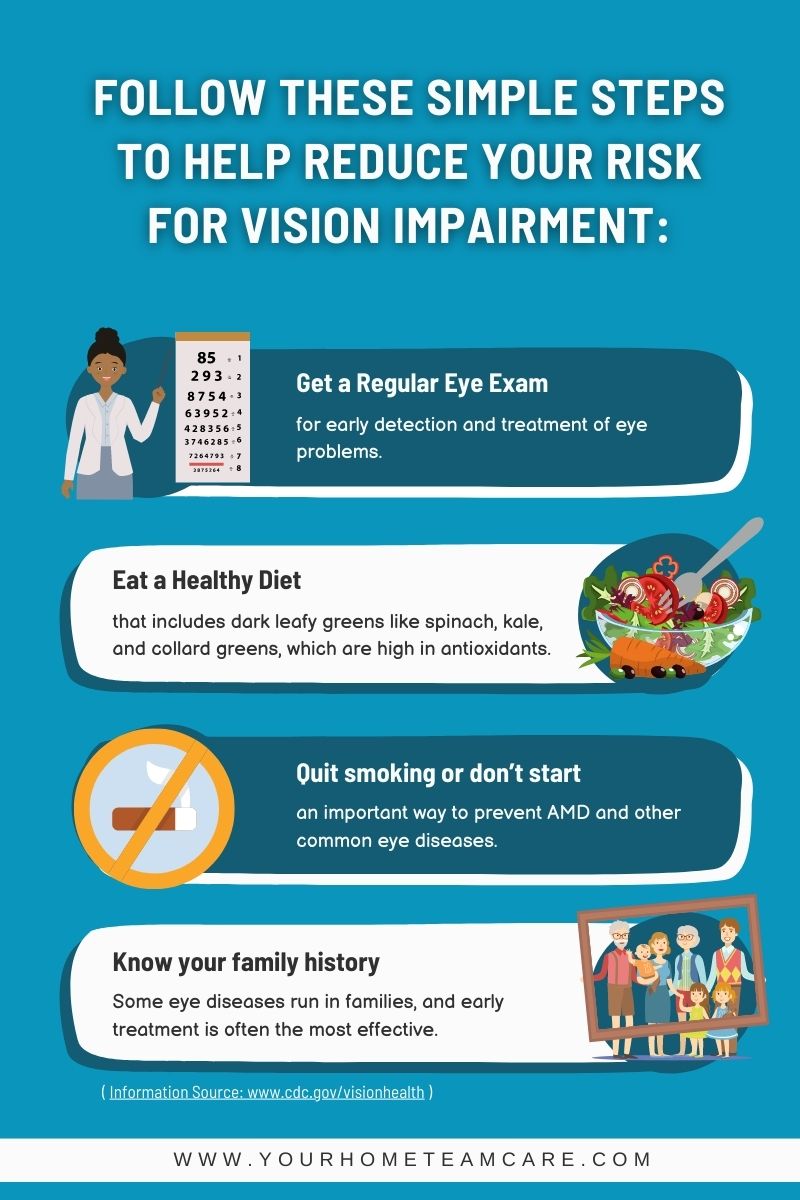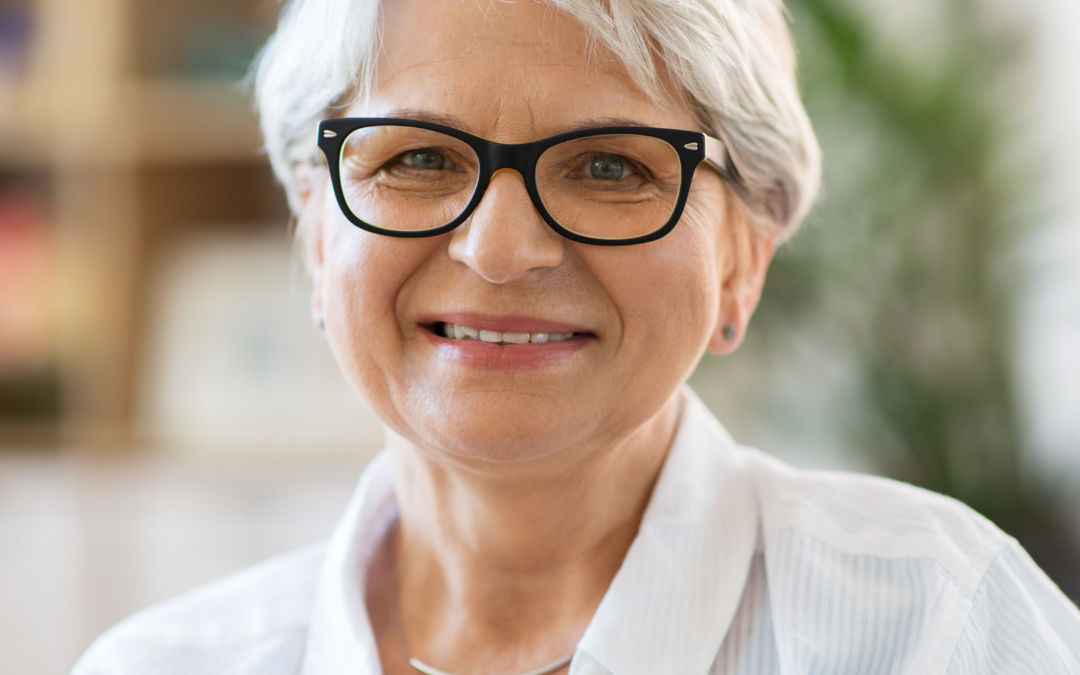In this post we will be sharing helpful tips to maintain healthy vision for seniors. As we age, there are many changes to our bodies that take place. One of the most noticeable change, is that of our eyesight.
For seniors that start losing their vision as they age, it can be a very devastating change. By losing their eyesight, they are losing their independence as well. Seniors tend to suffer many losses as they age: loss of freedom, loss of family members, mobility, friends, and independence. And close to 20 percent of the aging population suffer from some type of vision problem.
Common Problems Include:
Glaucoma:
Glaucoma is an eye disease that causes damage to the optic nerve in the eye. This optic nerve carries information from the eye to the brain. When pressure is higher than normal inside the eye, glaucoma is the result.
Since symptoms do not typically appear until some damage or loss of sight occurs, it is very important to see your eye practitioner for regular exams where intra-ocular pressure is measured. There are several different types of glaucoma, as well as treatments, and even preventative measures.
Cataracts:
A cataract is another form of eye disease. Here the eye develops a cloudy film which inhibits light passing into the retina. Cataracts typically form as you age when dead cells shed and form cloudy spots on the lens.
Surgery is necessary to remove the cataracts and it is a very common procedure today. There are several types of cataracts and they are treatable. The best defense against cataracts is to have regular eye exams to monitor them.
Macular Degeneration:
Macular degeneration is typically the number one cause of vision loss and/or blindness in persons who are aged 65 and over. When the macula, the part of the eye responsible for sharp vision, deteriorates, central vision loss may occur.
Having a retinal exam and performing a test to measure your central vision is crucial to detecting if macular degeneration is an issue.
Diabetic retinopathy:
Diabetic retinopathy causes tiny blind spots, which will in turn distort vision. This can change from one day to the next with regular vision to impaired vision on any given day.
There are many adverse effects to impaired vision:
- Inability to read
- Inability to drive
- Difficulty in mobility
- Trips and falls
- And even difficulty recognizing a familiar family member’s face
There are many things that can assist seniors with their vision loss. There are also different types of medication that help keep pressure in the eye down or at least stable. In addition, there are some types of surgeries that can improve vision.
Assistive devices that can aid with a senior’s loss of vision include:
- Magnifiers
- Voice activated caller id
- Voice activated watches
- Larger print for crossword puzzle books, books, and magazines
- Audio books
- Braille software
Apart from visual aids, seniors may also need help moving around. This is where mobility devices are helpful and may include:
- Canes
- Walkers
- Scooters
- Grab bars for bath and shower

Eye Care Is about More Than Just Your Eyes: Tips to maintain healthy vision
Of course, preventative steps to ensure healthy vision is the best choice. As you age, you can maintain proper eye health by eating healthy foods, exercising regularly (studies are beginning to show that cardiovascular exercise assists in this area), and by having regular eye exams. Why is it important for you to get an eye exam even if your vision is perfect or near perfect? There are several reasons to get an eye exam that have more to do with the rest of your body than just your eyes.
There are many health issues that can affect your eyesight:
- High blood pressure
- Diabetes
- High cholesterol
While there may or may not be signs or symptoms to any or all of these eye diseases, there are certainly ways to improve your sight or minimize these eye diseases.
For example, the following may be ways to improve your eyesight and be beneficial for your overall health, as well:
- Cardiovascular activity
- Eating healthy
- Regular exercise
- Taking vitamins
These activities will also keep things such as high blood pressure and high cholesterol at bay, which, in turn, may just safeguard not only your health, but your vision as well.
It is also important to understand that vision loss has a direct impact on mood in elderly individuals. Vision loss means loss of freedom and independence and family members and friends need to be sensitive to this fact. Scheduling visits with your senior loved one, having them join in social activities in the community in their place of worship, a nursing home, or senior center are all excellent ways to make them feel part of something and still viable and useful as human beings.

